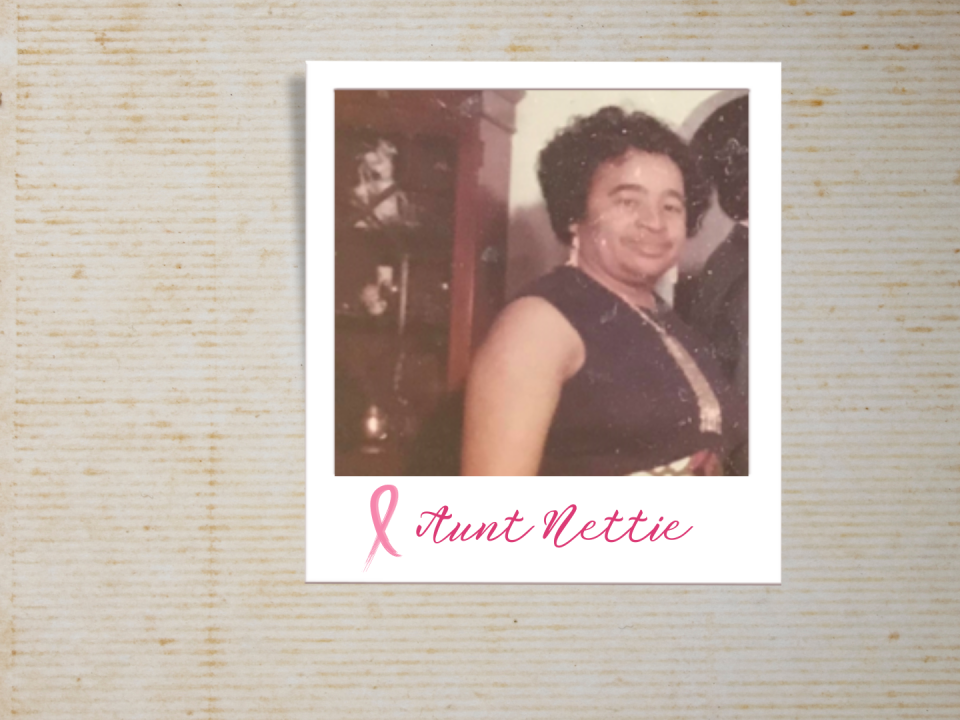Expert: Mortality Rates for Breast Cancer Improving But Still Grim for Black Women

Aggressive Triple Negative Breast Cancer Kills More Black Women Than Women of Other Ethnicities
10/27/2021
Honoring Black Women Celebrities Who Succumbed to Breast Cancer
10/27/2021By SAUNDRA YOUNG
The statistics paint a grim picture. Breast cancer is the most commonly diagnosed cancer in Black women and has a mortality rate second only to lung cancer.
Without question the disease is one of the most fatal health issues African American women of all ages face. Consider this:
*Black women under 35 are diagnosed with breast cancer at twice the rate of white women and die from the disease three times as often.
*The overall five-year survival for Black women is 81 percent versus 91 percent for white women.
*While Black women are diagnosed with breast cancer at a slightly lower rate than white women, the mortality rate is 40 percent higher. They are twice as likely to die if they are over 50.
According to the American Cancer Society (ACS), while there has been an overall 40 percent decline in breast cancer deaths over the last 30 years, there is still a mortality gap between Black women and white women.
In fact, African American women of all ages are more likely to die from breast cancer than all other races/ethnicities. This is partly because Black women are twice as likely to be diagnosed with triple negative breast cancer which is much harder to treat.
Triple negative breast cancer is different from other types of invasive breast cancer. The tumors are aggressive, they grow and spread faster, there are fewer effective treatment options and the prognosis is worse.
There are other reasons for the difference in mortality rates. According to the ACS, “Black women do not have the same access to high-quality cancer care compared to white women. They are more likely to be screened at lower resourced and non-accredited facilities, to go longer between mammograms, and to wait longer for a follow-up exam after getting an abnormal result.”
The stage at the time of diagnosis, the biology of the tumor, genetics, and treatment are also factors. According to the most recent and most comprehensive report on cancer and the Black community Cancer Facts & Figures for African Americans 2019-2021, “A recent analysis comparing molecular features of breast cancers in Black and white women estimated that 40 percent of the racial variation in breast cancer subtype are due to inherited genetic mutations. Inflammatory breast cancer, a rare but aggressive subtype, is also more common in Black women than white women.”
In 2016, the National Cancer Institute launched the largest-ever study of breast cancer genetics in Black women. In part, the Breast Cancer Genetic Study in African-Ancestry Populations is comparing the genomes of 20,000 Black women with breast cancer to 20,000 Black women who don’t have the disease.
They are also being compared to the genomes of white women with breast cancer. The study looks at how inherited genetic and biological factors contribute to breast cancer risk in Black women with the hopes of identifying genetic factors that may underlie breast cancer disparities. That trial is ongoing and being conducted at Vanderbilt University Medical Center.
The goal of the Breast Cancer Research Foundation’s (BCRF) is to put an end to breast cancer through research. They believe only research can bring an end to cancer and have nearly 275 researchers committed to achieving that goal. Dorraya El-Ashry, BCRF’s Chief Scientific Officer said the reasons for higher death rates in Black women are “deeply complex and sharply nuanced.”
“We know that certain health conditions – comorbidities – that are more likely to affect Black women, such as obesity, diabetes, and heart disease, increase the risk of breast cancer and/or adversely affect breast cancer outcomes. Black women are 50 percent more likely to be obese and have a two-fold increased risk of being overweight than white women” she said.
“They have a two-fold increased risk of diabetes and are 60 percent more likely to develop or be diagnosed with diabetes following breast cancer treatment than white women. These comorbidities not only affect breast cancer outcomes – breast cancer mortality is 30 percent higher for women who are obese – but they are also known to increase toxicity from treatment that can lead to incomplete treatment and poor outcomes.”















